Endocrinology and Hormones
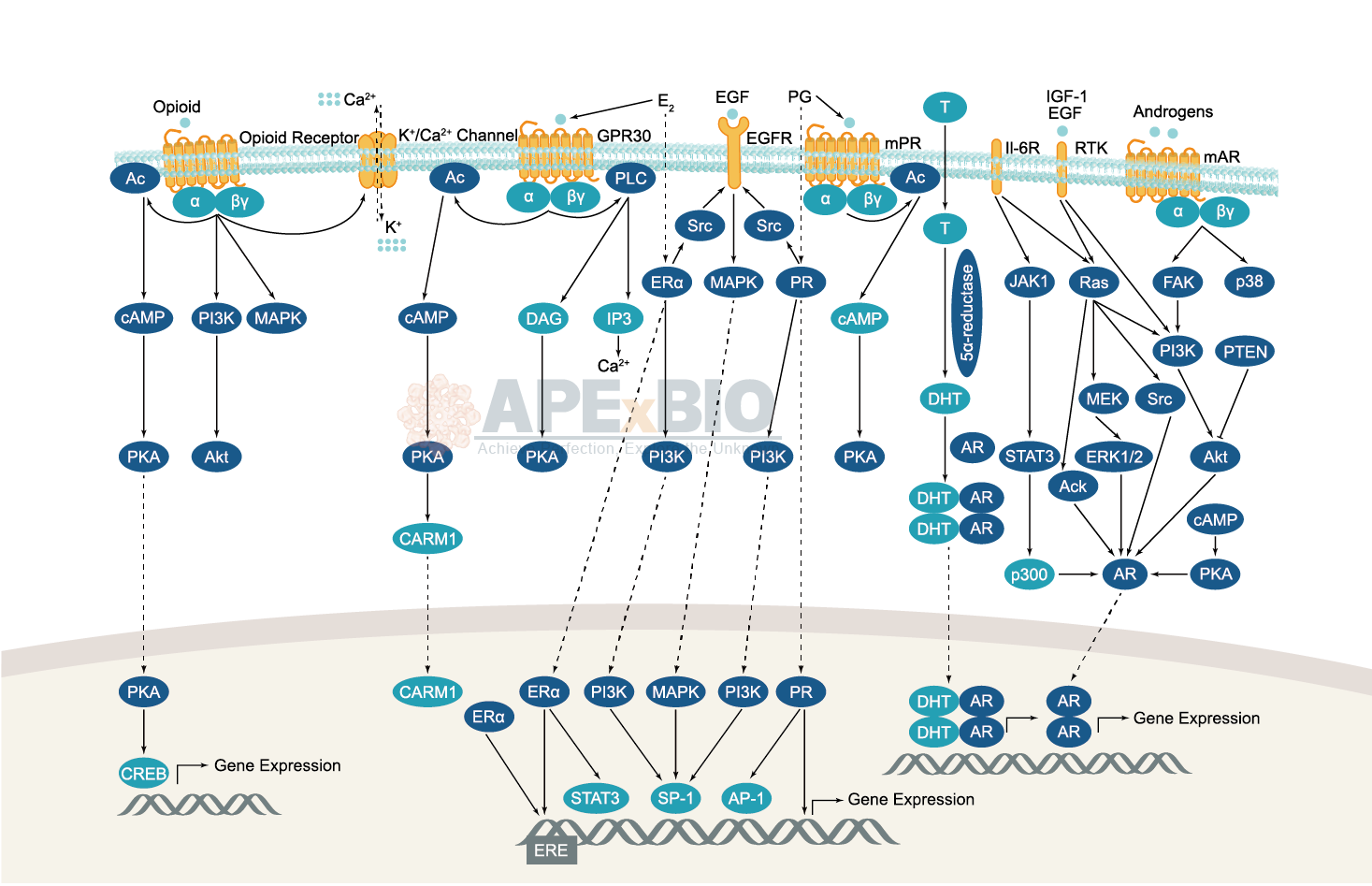
There are three types of hormones based on their chemical composition: Amines (e.g. dopamine, adrenalin and noradrenalin); Steroids (e.g. estrogen, testosterone and glucocorticoids); Peptides (e.g. the peptide hormones insulin, ghrelin and vasopressin). Peptide hormones produced by secretory nervous tissue are known as neuropeptides. For example, thyroid hormone plays important parts in development, homeostasis and metabolism, while cortisol is essential for growth, nutrient supply and immune function. Moreover, the regulation of blood glucose involves several pancreatic peptide insulin and its counter regulatory hormone, glucagon, as well as cortisol, growth hormone and epinephrine.
Dysregulations in endocrine system are implicated in diseases such as Acromegaly, Cushing Syndrome, Diabetes, Dwarfism, Graves Disease, Hermaphroditism, Delayed and Precocious Puberty and Thyroid Diseases.
-
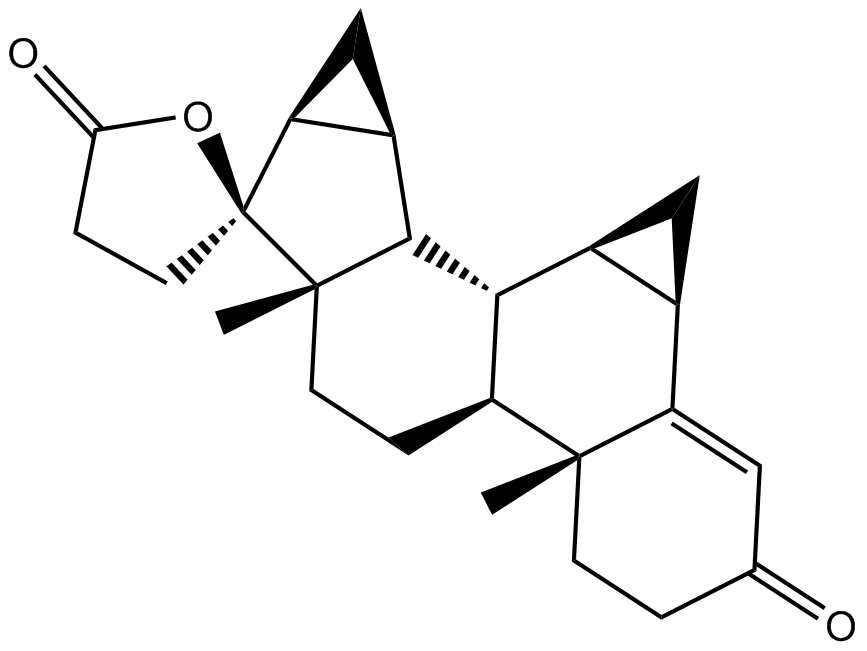 B1520 DrospirenoneSummary: Synthetic progestin
B1520 DrospirenoneSummary: Synthetic progestin -
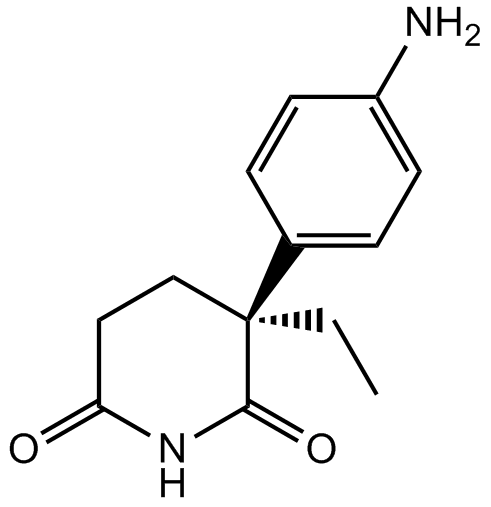 B1380 AminoglutethimideSummary: Aromatase inhibitor
B1380 AminoglutethimideSummary: Aromatase inhibitor -
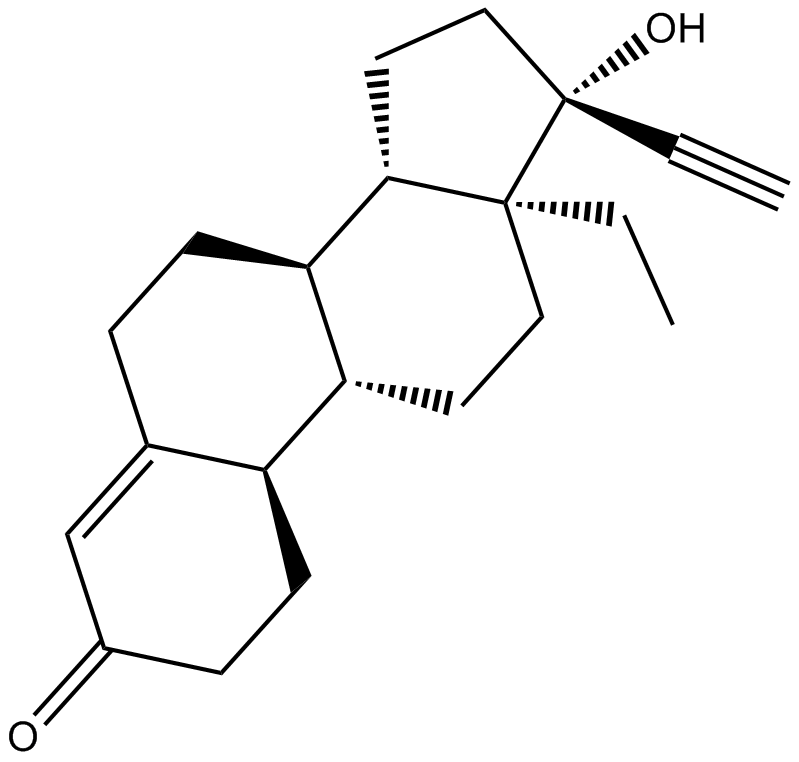 B1960 LevonorgestrelSummary: Estrogen/progestogen receptor agonist
B1960 LevonorgestrelSummary: Estrogen/progestogen receptor agonist -
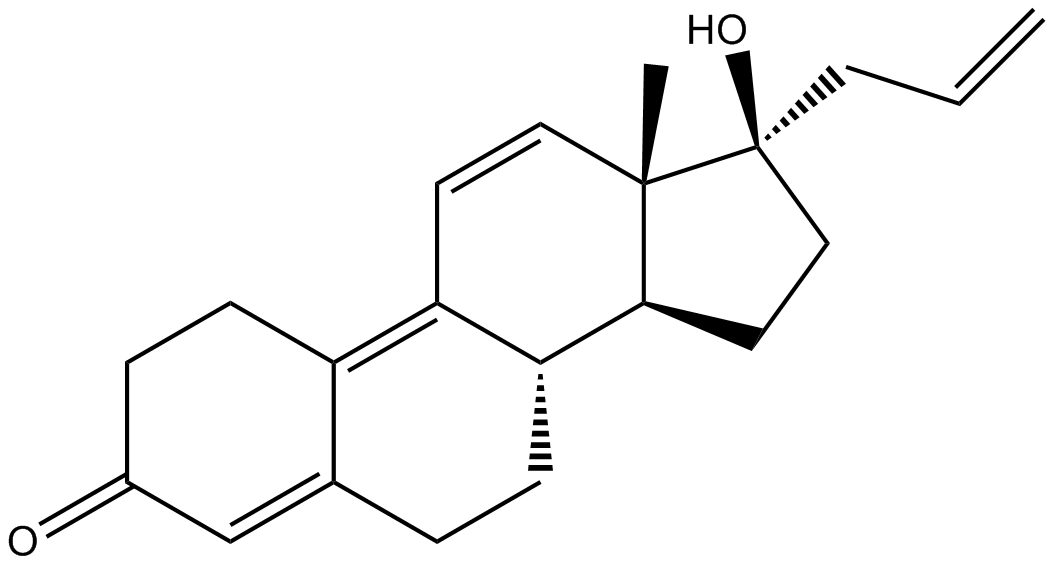 B1503 AltrenogestSummary: Progestogen receptor agonist
B1503 AltrenogestSummary: Progestogen receptor agonist -
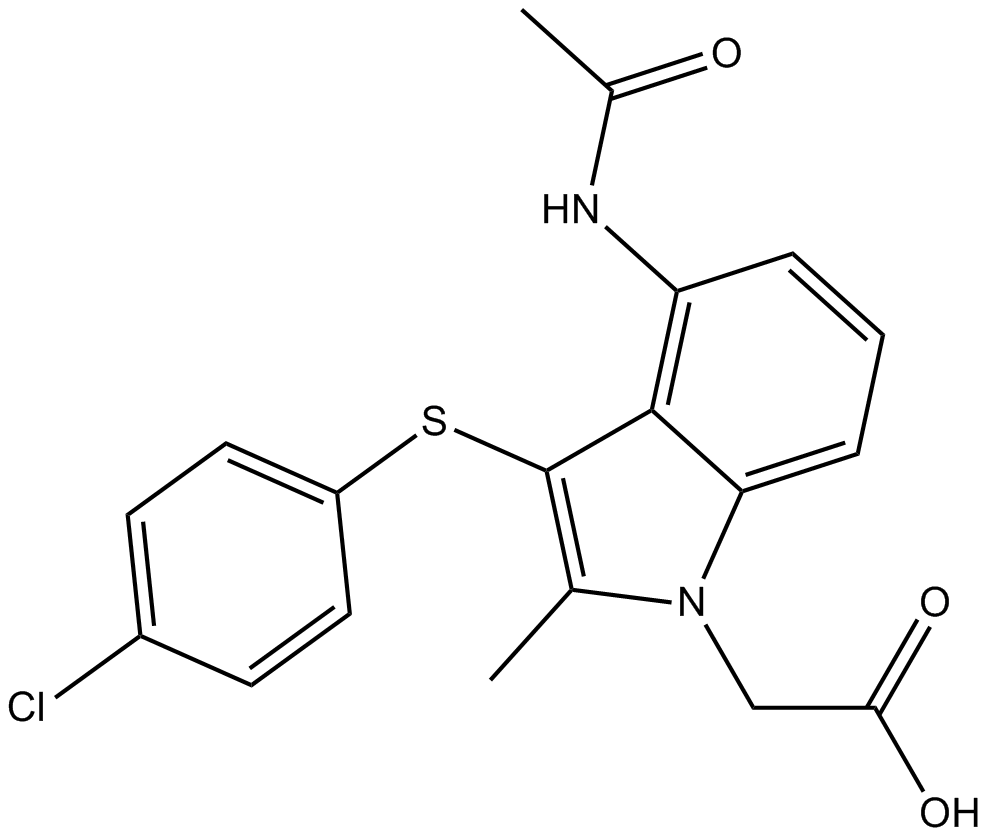 B1534 AZD1981Target: CRTH2Summary: CRTh2 antagonist,potent and selective
B1534 AZD1981Target: CRTH2Summary: CRTh2 antagonist,potent and selective -
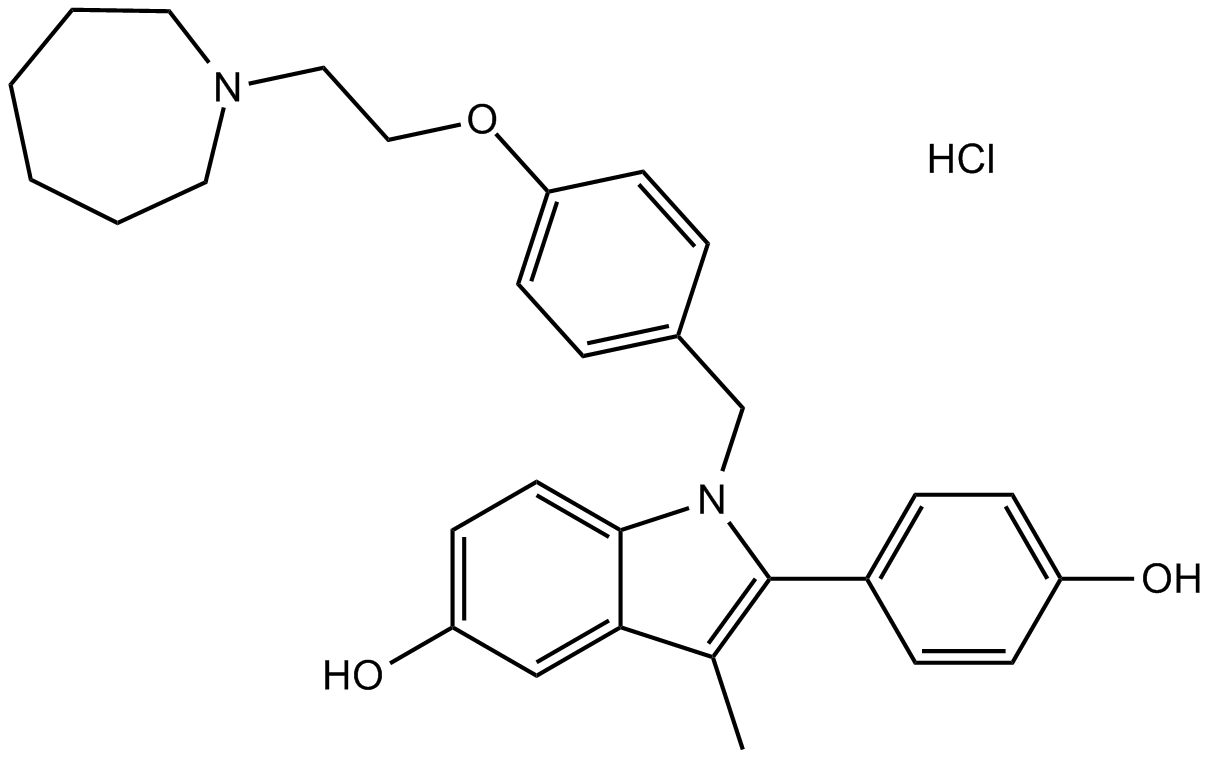 B1519 Bazedoxifene HClTarget: Estrogen and Related ReceptorsSummary: Novel, non-steroidal, indole-based estrogen receptor modulator (SERM)
B1519 Bazedoxifene HClTarget: Estrogen and Related ReceptorsSummary: Novel, non-steroidal, indole-based estrogen receptor modulator (SERM) -
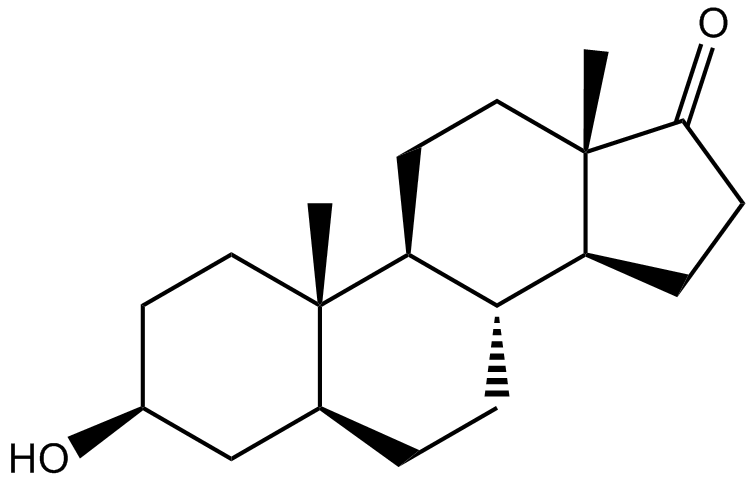 B1505 EpiandrosteroneTarget: Voltage-gated Calcium Channels (CaV)Summary: steroid hormone with weak androgenic activity
B1505 EpiandrosteroneTarget: Voltage-gated Calcium Channels (CaV)Summary: steroid hormone with weak androgenic activity -
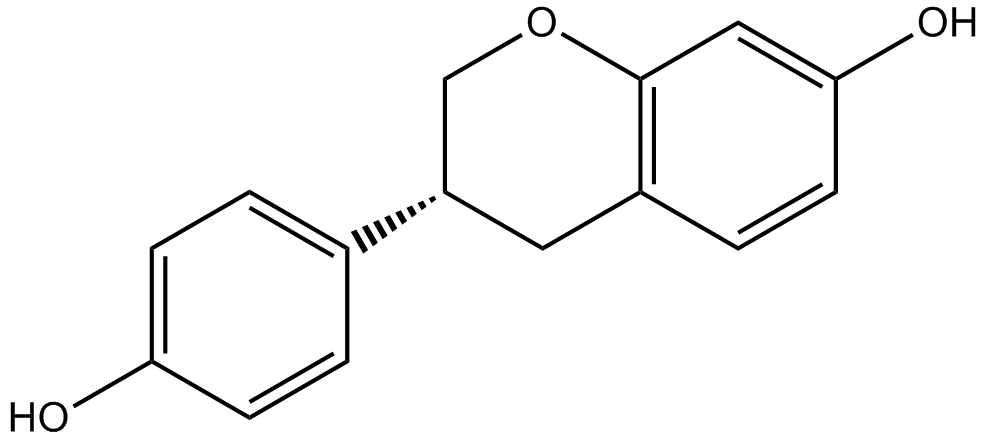 B1514 EquolSummary: non-steroidal estrogen
B1514 EquolSummary: non-steroidal estrogen -
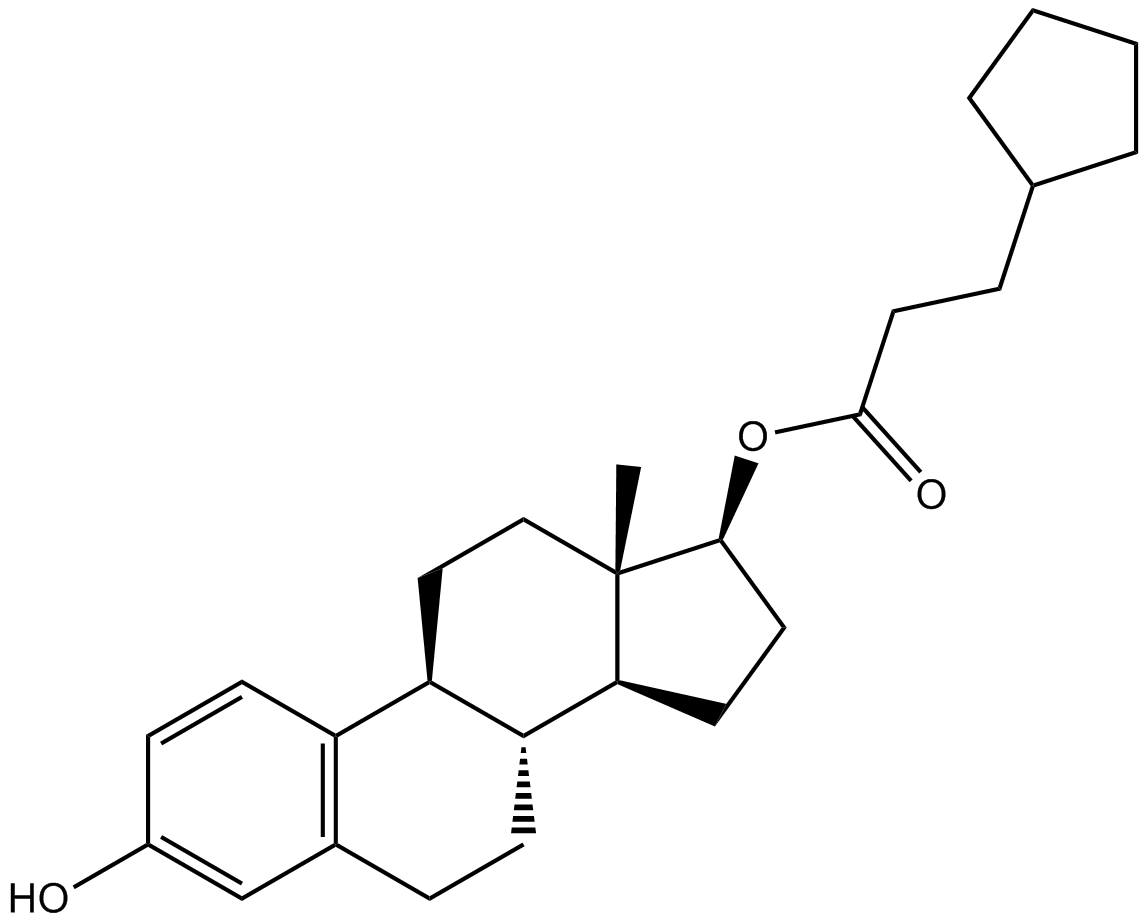 B1501 Estradiol CypionateSummary: Estrogen receptor agonist
B1501 Estradiol CypionateSummary: Estrogen receptor agonist -
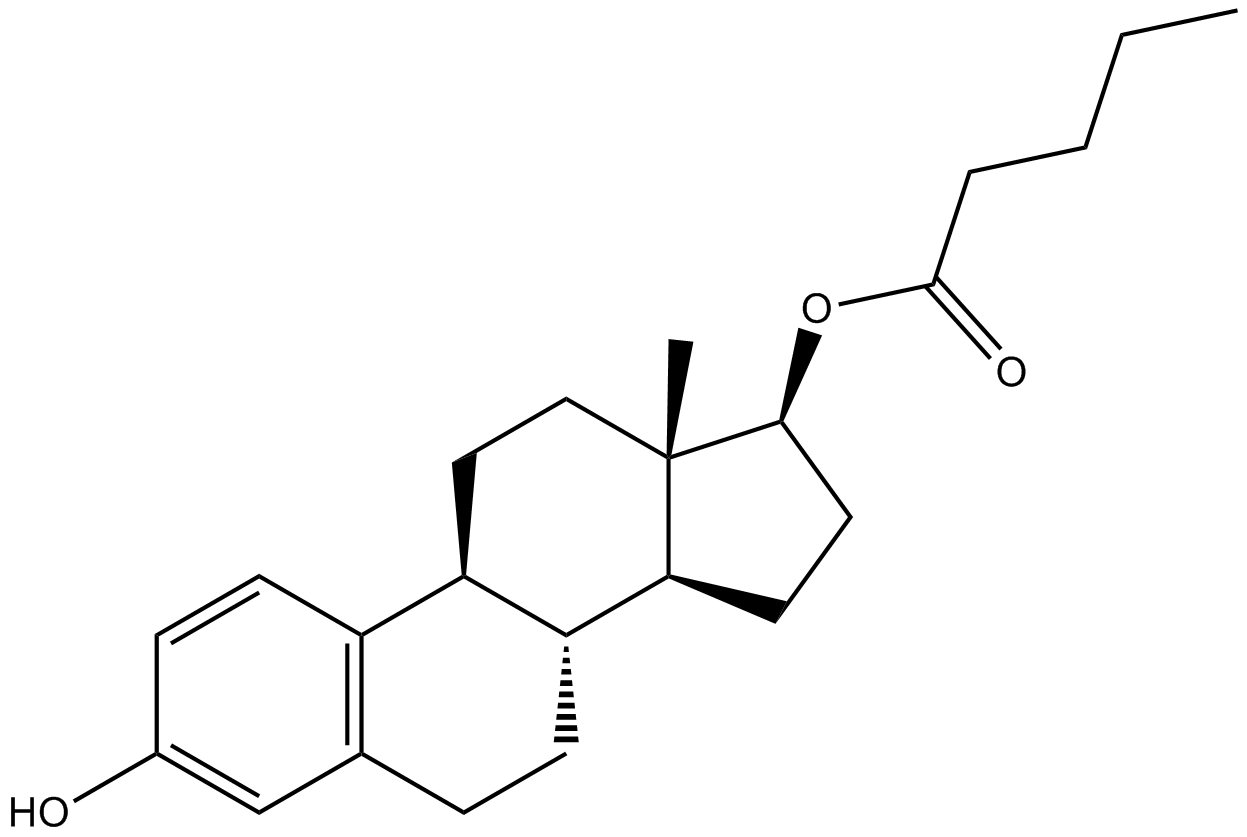 B1506 Estradiol valerateTarget: Estrogen and Related ReceptorsSummary: Estrogen receptor agonist
B1506 Estradiol valerateTarget: Estrogen and Related ReceptorsSummary: Estrogen receptor agonist

